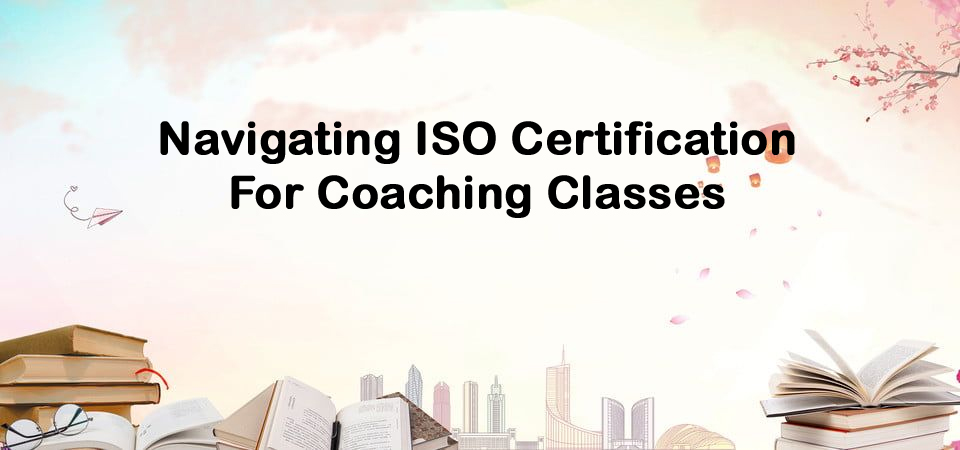Navigating ISO Certification for Coaching Classes

In the competitive realm of educational services, coaching classes play a pivotal role in shaping the academic futures of countless students. As these institutions seek to distinguish themselves and demonstrate their commitment to excellence, ISO certification emerges as a key differentiator. This article explores the journey towards ISO Certificate for coaching classes, highlighting its benefits, the certification process, and its transformative impact on both the institution and its learners.
Excellence in Education: The ISO Certification Advantage
ISO (International Organization for Standardization) certification for coaching classes is more than just a seal of approval; it’s a testament to an institution’s adherence to globally recognized standards of quality and management. It signifies a coaching class’s dedication to providing top-notch educational services and its commitment to continuous improvement.
Transforming Teaching: The Benefits of ISO Certification
Enhanced Credibility
ISO Certificate serves as a mark of trust and reliability, reassuring students and parents of the coaching class’s commitment to quality education.
Systematic Approach
The certification process encourages the adoption of a systematic approach to managing and delivering educational services, ensuring consistency and improvement in teaching methodologies.
Competitive Edge
In a crowded market, ISO-certified coaching classes stand out, offering them a competitive advantage that attracts more students and top-tier educators.
Improved Student Satisfaction
By standardizing service quality, coaching classes can enhance the overall student experience, leading to higher satisfaction and better academic outcomes.
The Certification Journey: A Step-by-Step Guide
Step 1: Understand the Requirements
The first step is to gain a comprehensive understanding of the ISO Certificate applicable to educational organizations and how they relate to the specific services offered by the coaching class.
Step 2: Gap Analysis
Perform a gap analysis to identify where the current operational standards fall short of ISO requirements and what needs to be done to bridge these gaps.
Step 3: Documentation
Develop a documented quality management system (QMS) that outlines all processes, policies, and procedures in line with ISO standards.
Step 4: Implementation
Roll out the QMS across the organization, ensuring all staff are trained and fully understand their roles within this framework.
Step 5: Internal Audit
Conduct an internal audit to assess the effectiveness of the ISO Certificate and identify areas for further improvement before the external audit.
Step 6: External Audit
An ISO-certified auditor conducts an external audit to evaluate the coaching class’s adherence to the standards. Successful completion leads to certification.
Step 7: Continuous Improvement
ISO Certificate is not a one-time achievement but a commitment to ongoing improvement. Regular reviews and updates to the QMS are necessary to maintain and enhance quality standards.
Conclusion: A Leap Towards Educational Excellence
ISO certification for coaching classes is an invaluable asset that reflects an institution’s dedication to excellence in education. It not only boosts the institution’s credibility and marketability but also fosters a culture of continuous improvement, ensuring that the coaching class remains at the forefront of educational innovation. ISO Certificate By embarking on this certification journey, coaching classes can truly differentiate themselves, providing students with the best possible educational experience and setting them on the path to academic success.